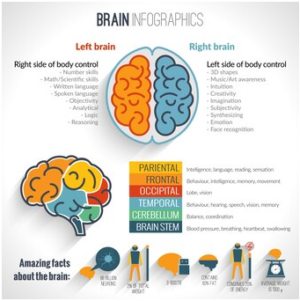Ensuring a Prosperous Future: Maintaining a healthy lifestyle is pivotal for ensuring a prosperous future. The combination of a nutritious diet and regular exercise is not only fundamental for physical well-being but also plays a crucial role in mental health. These practices extend beyond weight management and can significantly enhance sleep quality and mood. The positive impact on brain function and overall health is substantial, contributing to disease prevention and a higher quality of life.
Delving into Integral Aspects.
These practices extend beyond weight management and can significantly enhance sleep quality and mood. The positive impact on brain function and overall health is substantial, contributing to disease prevention and a higher quality of life.
In this comprehensive article, we delve into the integral aspects of nutrition and exercise for optimal health. Understanding the pivotal role of these two elements is essential for cultivating a sustainable and beneficial lifestyle.
A recent study highlights the alarming statistics that a significant portion of the population, especially those above the age of 30, grapples with weight-related issues. To address this concern, it is recommended to allocate daily caloric intake with 45-65% from carbohydrates, 20-35% from fats, and 10-35% from protein. Embracing a healthy lifestyle becomes evident once a routine is established, demonstrating tangible benefits.
In this comprehensive article, we delve into the integral aspects of nutrition and exercise for optimal health. Understanding the pivotal role of these two elements is essential for cultivating a sustainable and beneficial lifestyle.

The Significance of a Healthy Diet and Exercise
A. Nourishing Your Body with the Right Foods
- Incorporating Fruits and Vegetables: A vital component of a healthy diet involves consuming ample fruits and vegetables. Rich in essential vitamins, minerals, plant chemicals, and fiber, these foods play a pivotal role in safeguarding against diseases such as cancer, diabetes, and heart conditions. Optimal health is attainable by making fruits and vegetables a prominent part of every meal.
- Opting for Whole-Grain Foods: Whole grains, including bread, crackers, brown or wild rice, quinoa, oatmeal, and hulled barley, offer a wealth of benefits. These foods are rich in fiber, vitamin B, protein, and other essential nutrients. Choosing whole-grain alternatives over processed or refined grains aids in cholesterol control, weight management, and blood pressure regulation.
- Incorporating Protein-Rich Foods: Protein is a crucial component for overall health. Comprising amino acids, the building blocks for various bodily functions, protein aids in muscle and bone development, hormone and enzyme production, and serves as an energy source. Including protein-rich foods such as legumes, nuts, seeds, tofu, eggs, fish, and dairy products in daily meals is essential for maintaining optimal health.
- Hydration: Staying adequately hydrated is paramount for maintaining the body’s fluid balance. Consisting of approximately 60% water, the human body relies on proper hydration for functions like digestion, nutrient transportation, and temperature regulation. Drinking ample water or opting for alternatives like coffee, tea, unsweetened lower-fat milk, or boiled water ensures optimal health.
B. Embracing the Benefits of Daily Exercise
- Regulating Hunger Hormones: Regular exercise plays a pivotal role in regulating hunger hormones, helping to prevent overeating and unnecessary snacking. However, moderation is key, as excessive exercise may lead to increased appetite and potential injuries.
- Strength Training for Metabolic Rate: Engaging in strength training is beneficial for maintaining and increasing muscle mass. This, in turn, elevates the metabolic rate, leading to a continuous calorie burn even during periods of rest. A single session of strength training can boost metabolic rate for up to 72 hours.

С. Optimizing Health Through Exercise: A Comprehensive Approach.
3. Overall Health Improvement: Exercise contributes to enhanced brain health, weight management, disease prevention, and the strengthening of bones and muscles. Regular physical activity not only burns calories but also increases the metabolic rate, providing flexibility in dietary choices and making weight loss more enjoyable.
4. Aerobic Exercises for Calorie Deficit: Activities like walking, jogging, cycling, running, swimming, and meditation, especially at a low to moderate intensity for 30 minutes or longer, can effectively burn calories and promote a calorie deficit. These exercises also contribute significantly to mental health.
Closing Thoughts.
In conclusion, prioritizing nutrition and exercise is imperative for maintaining a healthy body. Creating a calorie deficit through dietary changes while incorporating regular exercise offers a myriad of benefits. Emphasizing the consumption of fruits and vegetables, whole-grain foods, protein-rich sources, and maintaining proper hydration is crucial. Aim for a minimum of 150 minutes of moderate to vigorous exercise weekly to reap the numerous physical, psychological, and emotional advantages that a healthy lifestyle brings.


